Plot
Princess Helen, sovereign of Thessaly, hates the formality and constraint of court life, while her maid, Anna, daughter of the Chief Steward, Jasomir, is devoted to etiquette and courtly customs. Helen's bibulous uncle Bogumil is Prince Regent. He has so poorly managed the country's finances that the Treasury has run dry. Bogumil and his Prime Minister Gjuro ineptly plot each other's downfall. Gjuro proposes that Helen should marry the wealthy, formal and dignified Prince Nicola of Micholics. A head bailiff is mistaken for a wealthy banker, and the Regent and his creditors pay him extravagant courtesy.
Helen loves her music teacher, Augustin, and detests Nicola, though Anna fancies him. Thanks to the curiosity of Nicola's sister Clementine, it is discovered in an old book in the archive of a monastery that Helen and Anna were switched at birth by their nurse. Helen is free to marry Augustin, and Anna gladly marries Nicola.
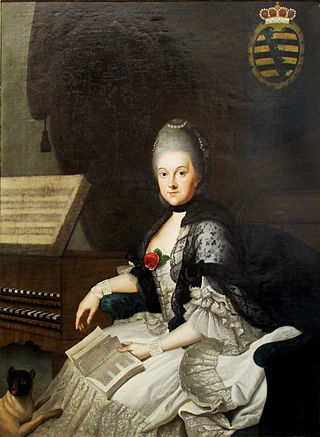
Anna Amalia of Brunswick-Wolfenbüttel, was a German princess and composer. She became the duchess of Saxe-Weimar-Eisenach by marriage, and was also regent of the states of Saxe-Weimar and Saxe-Eisenach from 1758 to 1775. She transformed her court and its surrounding into the most influential cultural center of Germany.

Dame Esmerelda Cicely Courtneidge, was an Australian-born British actress, comedian and singer. The daughter of the producer and playwright Robert Courtneidge, she was appearing in his productions in the West End by the age of 16, and was quickly promoted from minor to major roles in his Edwardian musical comedies.

Berenice is an opera in three acts by George Frideric Handel to a 1709 Antonio Salvi libretto, Berenice, regina d’Egitto, or Berenice, Queen of Egypt. Handel began the music in December 1736; the premiere took place at Covent Garden Theatre in London on 18 May 1737 — but was unsuccessful, with just three further performances. Set circa 81 B.C., Berenice traces the life of Berenice III of Egypt, daughter of Ptolemy IX, the main character in another Handel opera, Tolomeo.

Leopold Fall was an Austrian Kapellmeister and composer of operettas.

George Joseph Edwardes was an English theatre manager and producer of Irish ancestry who brought a new era in musical theatre to the British stage and beyond.

Basil Willett Charles Hood was a British dramatist and lyricist, perhaps best known for writing the libretti of half a dozen Savoy Operas and for his English adaptations of operettas, including The Merry Widow.

Tom Jones is a comic opera in three acts by Edward German founded upon Henry Fielding's 1749 novel, The History of Tom Jones, a Foundling, with a libretto by Robert Courtneidge and Alexander M. Thompson and lyrics by Charles H. Taylor.

Percy Greenbank was an English lyricist and librettist, best known for his contribution of lyrics to a number of successful Edwardian musical comedies in the early years of the 20th century. His older brother, the dramatist Harry Greenbank, had a brilliant career in the 1890s that was cut short by his death at the age of 33. Percy picked up where his brother had left off, writing lyrics for some of the most popular musicals from 1900 through World War I and even afterwards.
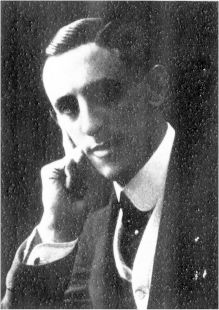
Paul Alfred Rubens was an English songwriter and librettist who wrote some of the most popular Edwardian musical comedies of the early twentieth century. He contributed to the success of dozens of musicals.
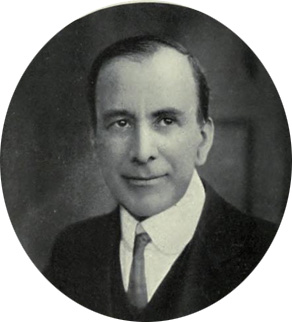
Robert Courtneidge was a British theatrical manager-producer and playwright. He is best remembered as the co-author of the light opera Tom Jones (1907) and the producer of The Arcadians (1909). He was the father of the actress Cicely Courtneidge, who played in many of his early 20th century productions.
Hoheit tanzt Walzer is an operetta in three acts by Leo Ascher to a libretto by Julius Brammer and Alfred Grünwald, with a plot loosely based on Oscar Straus' 1907 operetta Ein Walzertraum. It premiered on 24 February 1912 at the Raimund Theater in Vienna. The work also appeared in a version with an extended plot under the title Hochzeitswalzer in Zürich in 1937.
Alexander Mattock Thompson, sometimes credited as A. M. Thompson, was a German-born English journalist and dramatist. From the 1880s, Thompson wrote for socialist newspapers and journals, co-founding The Clarion in 1891. He became an important librettist of Edwardian musical comedies in the early 20th century.

Rudolf Bernauer was an Austrian lyricist, librettist, screenwriter, film director, producer, and actor.

Beauty and the Beast is a 1987 American/Israeli musical film, part of the 1980s film series Cannon Movie Tales. It is a contemporary adaptation of the classic tale of Beauty and the Beast by Jeanne-Marie Leprince de Beaumont, borrowing also elements from Villeneuve's version, such as the dream sequences. The film was shot entirely in Israel, and the taglines were: "The monster they feared was the prince she loved" and "The classic fairy tale about seeing with your heart".
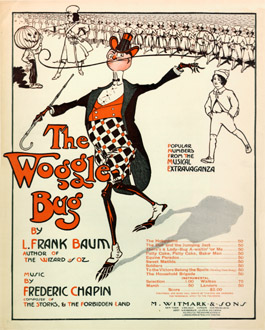
The Woggle-Bug is a 1905 musical based on the 1904 novel The Marvelous Land of Oz by L. Frank Baum, with book and lyrics by the author and music by Frederic Chapin that opened June 18, 1905 at the Garrick Theater in Chicago under the direction of Frank Smithson, a Shubert Organization employee. The musical was a major critical and commercial failure, running less than a month. Chapin, however, had proven quite saleable to the publisher, M. Witmark and Sons, and many of the songs were published. The music director was Frank Pallma. The surviving sheet music was published by Hungry Tiger Press in 2002.
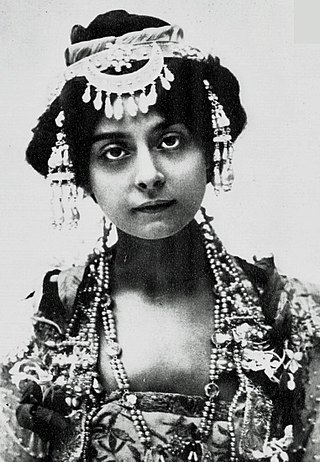
The Blue Moon is an Edwardian musical comedy with music composed by Howard Talbot and Paul Rubens, lyrics by Percy Greenbank and Rubens and a book by Harold Ellis and by Alexander M. Thompson. It is set in India during the days of the British Raj, and concerns the love of a singing girl for a young British army officer.
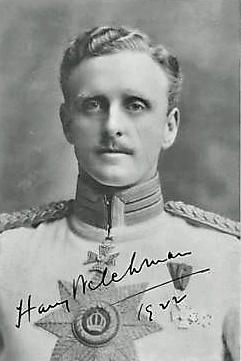
Harry Welchman was an English star of musical theatre. He made several appearances in non-musical plays, but was remembered as, in the words of The Times, "perhaps the most popular musical comedy hero on the London stage in the years between the wars."

Dan Rolyat, born Herbert Taylor, was an English actor and singer. After an apprenticeship with a touring company he was engaged by the impresarios George Edwardes and Robert Courtneidge to play comic roles in musical comedy. He also played in variety shows and, later in his career, in farce.

Arlette is a 1917 operetta in three acts by Austen Hurgon and George Arthurs with lyrics by Adrian Ross and Clifford Grey. Produced by George Grossmith Jr. and Edward Laurillard it was adapted from the French with music by Jane Vieu, Guy Le Feuvre and Ivor Novello. It opened at the Shaftesbury Theatre in London on 6 September 1917 where it ran for 260 performances. It starred Winifred Barnes, Joseph Coyne and Stanley Lupino.

Maidie Andrews was an English actress and singer who, in career that spanned six decades, was a child actress and later a stage beauty who appeared in musical comedy including the original London productions of No, No, Nanette (1925) and Cavalcade (1931). The latter years of her career saw her taking roles in television and film.


















